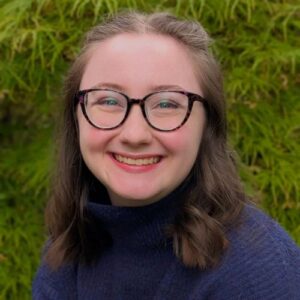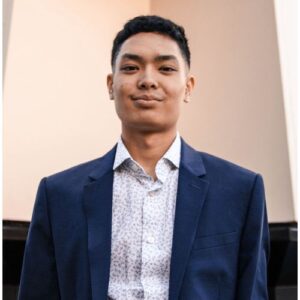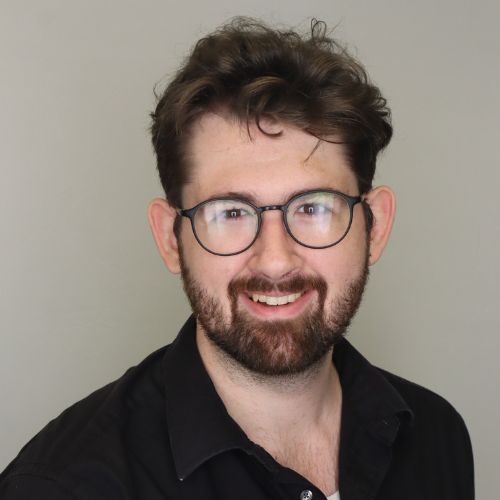This year’s Fulbright Fellowship awardees’ projects span critical topics—from international nursing migration and chronic disease surveillance to culturally responsive teaching and aerospace innovation.
The U.S. scholarship program is the largest international exchange opportunity in the country for students to pursue graduate study, advanced research and teaching.
Three University of Washington (UW) graduate student recipients and one alternate will carry their research and teaching across four continents.
The UW consistently ranks among the top producers of Fulbright U.S. Student scholars. Their work reflects the Graduate School’s ongoing support for globally engaged research and education and underscores the university’s mission to foster leadership that crosses borders and disciplines alike.
Emily Bassett: Teaching for tomorrow
 Emily Bassett, a University of Washington alumna with a master’s in teaching from the College of Education, has been awarded a Fulbright U.S. Student Award to Norway, where she will apply her passion for culturally responsive education and student expression.
Emily Bassett, a University of Washington alumna with a master’s in teaching from the College of Education, has been awarded a Fulbright U.S. Student Award to Norway, where she will apply her passion for culturally responsive education and student expression.
In Bergen, Bassett will collaborate with university and upper-secondary educators to design learning environments that are not only accessible and engaging, but also inclusive of diverse cultural perspectives. Drawing on her background as a high school educator in the Lake Washington School District, she will focus on enhancing students’ media literacy, critical thinking and writing skills through innovative, inquiry-driven approaches.
As part of her Fulbright research, Bassett will also work closely with journalism programs in both university and high school settings, encouraging students to use storytelling and reporting as tools for civic engagement and personal voice.
“I’m most excited for the chance to connect with learners and educators from around Norway while also improving my language skills and spending time within the Bergen community,” Bassett said.
In addition to her teaching and research efforts, Bassett will serve as a cultural ambassador, fostering dialogue, understanding and exchange between the U.S. and Norway. After completing her Fulbright, she plans to return to her teaching position at Eastlake High School, bringing with her new perspectives on pedagogy and student empowerment.
“I hope that I’ll be able to bring different styles of teaching and learning to my classroom and students,” she said.
Bassett’s work underscores the power of education to build bridges—between countries and classrooms. Through her Fulbright experience, she’s not only guiding students in Norway to think critically and express themselves fully, but she’s also gathering ideas and approaches that will echo in her own classroom long after the grant ends.
Vincent Da: At the heart of global healthcare
 As the world continues to grapple with healthcare shortages and the complexities of global workforce migration, one University of Washington graduate student is undertaking research that investigates examining how immigration shapes the careers and contributions of international nurses.
As the world continues to grapple with healthcare shortages and the complexities of global workforce migration, one University of Washington graduate student is undertaking research that investigates examining how immigration shapes the careers and contributions of international nurses.
This year, Vicent Da, a master’s student in health administration, has received a Fulbright Research Grant to study in the Philippines, where he will explore one of the more prevalent, yet under-examined topics in international healthcare: the migration of Filipino nurses to the United States.
Hosted by the University of the Philippines Manila and working in close collaboration with the Dean of the College of Nursing, Da will use interviews, fieldwork and ethnographic observation to better understand the personal and systemic factors that drive Filipino nurses to leave home and care for patients halfway across the world.
“What excites me most about this work is the opportunity to uplift and center the voices of Filipino nurses,” Da explains. “For generations, they’ve been the backbone of healthcare systems around the world—providing life-saving care with strength, compassion, and resilience. Filipino nurses are renowned for their dedication, work ethic, and heart, yet their stories often go unheard. The Philippines is the world’s leading exporter of nursing talent, and I’m passionate about bringing visibility to their experiences and highlighting the vital role they play in shaping global health systems.”
For Da, this project is more than academic. It’s a pursuit of connection and reflection—one that will allow Da to better understand the culture that has shaped his own identity, while also advancing knowledge that could change how healthcare institutions recruit, support and value international nurses.
“Through this work, I hope to foster deeper understanding, appreciation and collaboration between the U.S. and the Philippines,” Da shares. “As a heritage applicant with family still in the Philippines, this opportunity also allows me to reconnect with my roots and immerse myself in the culture that has shaped who I am. I’m grateful to engage in meaningful research while deepening my understanding of my identity and community.”
When the research grant finishes, Da plans to return to the U.S. and work within a hospital system or healthcare organization, using his findings to inform equitable recruitment and retention of the international healthcare workforce, ones that recognize the contributions of sending countries, like the Philippines, and promote long-term and fair global partnerships.
At a time when immigration and cultural understanding are particularly resonant, Da’s work is a powerful reminder that global health begins with human stories—from places near and far.
Thomas Key: Reaching new heights
 Thomas Key, a Master of Science student in Aeronautics & Astronautics at the University of Washington, is taking his passion for space technology and international collaboration to new heights—literally and figuratively.
Thomas Key, a Master of Science student in Aeronautics & Astronautics at the University of Washington, is taking his passion for space technology and international collaboration to new heights—literally and figuratively.
This year, Key was awarded a prestigious Fulbright U.S. Student Award to Brazil, where he will work on advanced battery control systems at the University of São Paulo (USP) and collaborate with professionals near the Brazilian Space Agency’s launch site in Alcântara, Maranhão.
His research, housed in USP’s Laboratório de Automação e Controle (Automation and Control Laboratory), has applications that span both terrestrial and extraterrestrial frontiers, powering both municipal bus systems and supporting spacecraft missions.
“I’m excited to both deepen my relationships with the space industry in South America and improve my abilities as an engineer,” Key said.
His work in Brazil represents more than a technical challenge; it reflects a growing need for international cooperation in aerospace innovation. With emerging space programs in Latin America gaining momentum, Key sees this opportunity as a launchpad for deeper collaboration between global agencies.
After completing his Fulbright award, Key plans to use the experience to help strengthen ties between international space agencies, combining his existing expertise with his new technical and cultural insights.
“With the skills I’ve learned already alongside what I’ll gain at USP and UFMA,” he said, “the goal is to aim those skills to work within the public space industry.”
Key’s Fulbright project highlights the value of global partnerships in advancing not only science and engineering, but also diplomacy and shared understanding. As space exploration becomes an increasingly global enterprise, students like Key are laying the groundwork for a more connected future in space science.
Ethan Kahn: Modeling for impact
 Ethan Kahn, a public health researcher and recent contributor to the Institute for Health Metrics and Evaluation (IHME) at the University of Washington, has been named an alternate for the prestigious Fulbright U.S. Student Program. His proposed project—designed in collaboration with the University of Global Health Equity (UGHE) in Rwanda—aims to address a growing global health concern: hypertension.
Ethan Kahn, a public health researcher and recent contributor to the Institute for Health Metrics and Evaluation (IHME) at the University of Washington, has been named an alternate for the prestigious Fulbright U.S. Student Program. His proposed project—designed in collaboration with the University of Global Health Equity (UGHE) in Rwanda—aims to address a growing global health concern: hypertension.
Building on his experience modeling disease burden at the county level in the U.S., Kahn plans to estimate and map the prevalence of hypertension across Rwanda. His work would support UGHE’s new health surveillance system based in Butaro, a rural region where data-driven healthcare is rapidly evolving.
“I will use statistical modeling to triangulate between this new health data and Rwanda’s existing demographic and disease surveillance,” Kahn explains. “This will allow us to predict communities with a high prevalence of hypertension beyond the data collection area.”
His goal is to make chronic disease data actionable, scalable and inclusive, extending its impact far beyond the reach of current surveillance.
“I’m most excited for the opportunity to collaborate with researchers at UGHE, gain hands-on experience rolling out a new disease surveillance system, and leverage statistical modeling to extend the public health benefits of chronic disease surveillance in Butaro,” Kahn says.
Kahn’s work reflects a broader commitment to health equity—one shared by Rwanda, which has prioritized equitable healthcare as a pillar of national development, and by UGHE, which was founded to reimagine global health education and practice.
Kahn’s project represents the kind of forward-looking, collaborative research that sits at the heart of modern global health efforts. By combining data science, local context and an equity-first approach, he hopes to support smarter, more inclusive health systems—one model at a time.